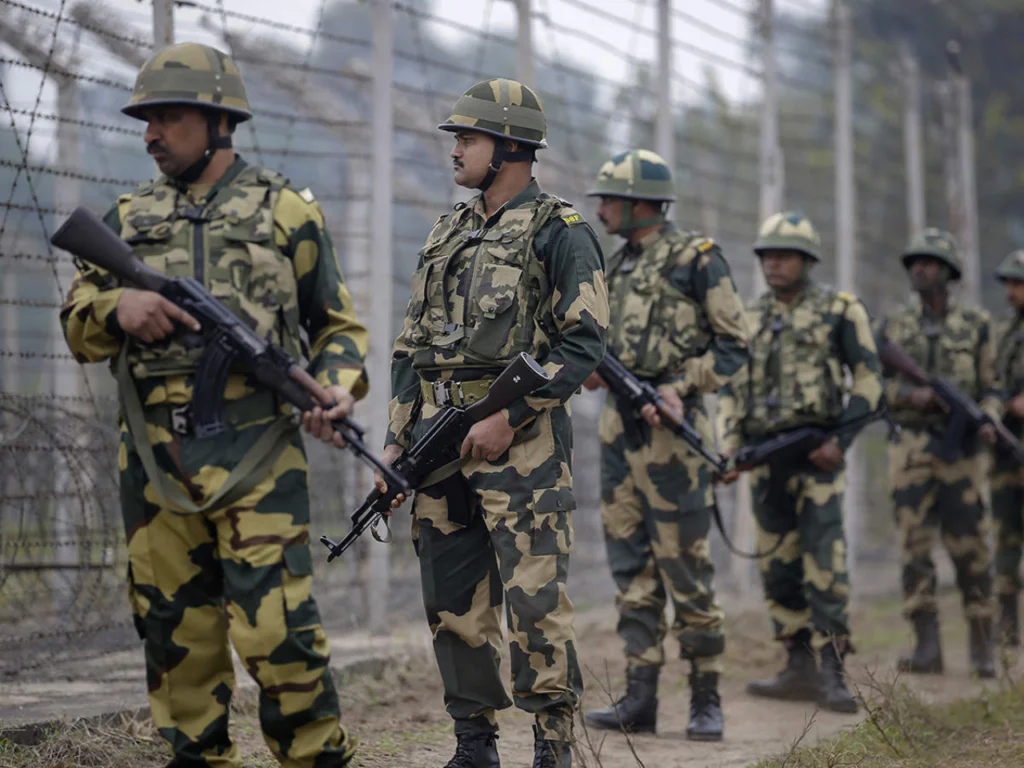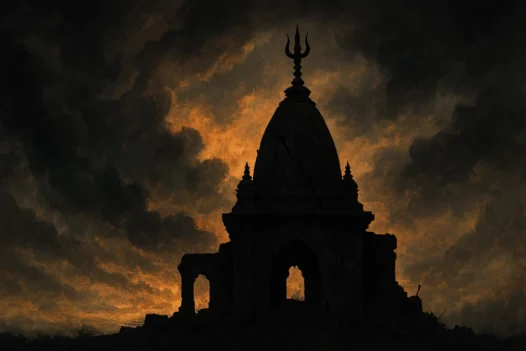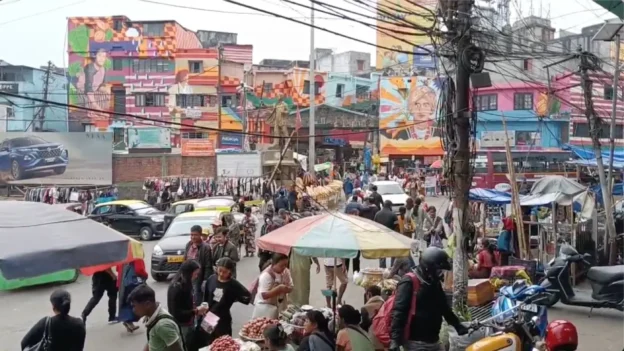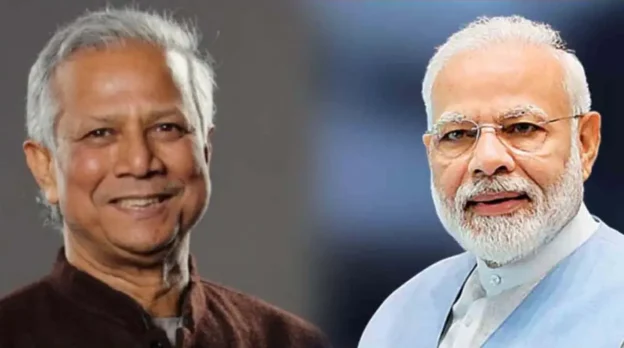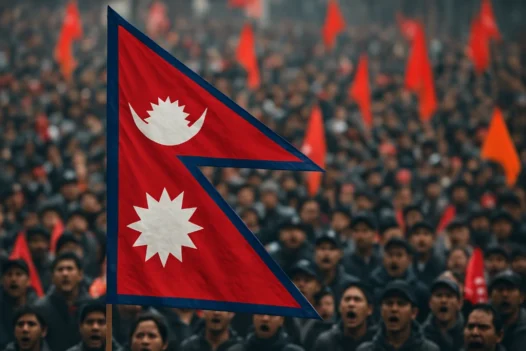Since the political crisis and subsequent ouster of the Sheikh Hasina-led government in Bangladesh on August 5, the Indian government has intensified security along the otherwise relatively relaxed 4,096-kilometre India-Bangladesh border. Border Security Force (BSF) units and local police have been directed to maintain constant vigilance along the extensive border shared between Bangladesh and the Indian states of Assam, Tripura, Mizoram, Meghalaya, and West Bengal. Concerns have grown within New Delhi regarding the potential for infiltration by radical elements from Bangladesh, raising fears of disturbances in India’s northeast region amid already strained cross-border relations.
The current instability in Bangladesh presents challenges as radical elements tied to a broader network of global Islamic fundamentalism may attempt to enter India through the northeastern states, adding to an already complex security landscape. Notably, Bangladeshi student groups and protestors have openly issued threats targeting India, specifically the “seven sister states” and West Bengal. Among them, Prof. Muhammad Yunus, who leads Bangladesh’s interim caretaker government, issued a veiled cautionary message about regional security. While he stressed that Bangladesh seeks friendly ties with India, he remarked, “If you destabilize Bangladesh, it will spill over all around, including Myanmar, the seven sisters, and West Bengal.” The Indian government has thus interpreted this statement as an implicit warning, particularly for its northeastern security outlook.
In the months following the dissolution of the Awami League-led government, events along the India-Bangladesh border have highlighted the need for India’s heightened alert. Security agencies have thwarted multiple infiltration attempts into Assam, Tripura, and Meghalaya, and there have been increased instances of attempted currency smuggling and potential human trafficking. For example, on November 3, BSF personnel and Meghalaya police arrested an Indian woman carrying counterfeit currency valued at Rs 70,000 in Rs 500 denominations near the Gumaghat area of the South West Khasi Hills along the border. Following her arrest, she and the counterfeit currency were handed over to Ranikor police for further investigation.
Government reports indicate a significant rise in arrests along the border in Assam, where over 130 individuals, including suspected Rohingya, have attempted illegal entry into India. Assam Chief Minister Himanta Biswa Sarma shared this information on his social media platform, highlighting a recent case on October 25 involving two individuals, one of whom posed as a Hindu named Priyanka Gain to disguise her identity. This incident underscores the variety of tactics employed by infiltrators to evade detection. On October 14, Assam Police apprehended 14 Bangladeshi nationals in the South Salmara and Karimganj districts, nine of whom were reportedly carrying fake Aadhaar cards. Sarma stated that since tensions began in Bangladesh, authorities have detained 108 illegal infiltrators in Assam.
Arrests in other states, such as Tripura and the Siliguri sector of West Bengal, also reflect a concerted effort by the BSF and state police forces to prevent unauthorised entries. Reports suggest that many individuals apprehended are suspected anti-India elements, some of whom purportedly crossed the border with specific motives. The Assam Chief Minister has sought increased cooperation from the West Bengal government to address infiltration concerns, urging coordinated support for the BSF in countering illegal migration and potential security threats.
Sources within the BSF and Indian government also highlight the possible involvement of the Ansarullah Bangla Team (ABT), a known pan-Islamist militant organisation with links to al-Qaida. The ABT, also referred to as Ansar-al Islam Bangladesh or Ansar Bangla, has historically attempted to expand its network across borders, aiming to establish sleeper cells within India’s northeastern states. As recently as May, Assam Police apprehended two ABT-linked terrorists, Bahar Mia and Rarely Mia, at Guwahati railway station, underscoring ongoing attempts by the group to infiltrate Indian territory.
The ABT’s activities in Bangladesh include orchestrating attacks against secular bloggers from 2013 to 2015, resulting in its designation as a terrorist organisation by Bangladesh’s Ministry of Home Affairs in May 2015. Recently, the caretaker government in Bangladesh, led by Nobel laureate Muhammad Yunus, approved the parole of Jashimuddin Rahmani, the ABT’s leader. Rahmani, who had been sentenced to five years for his role in the killing of secular blogger Rajib Haider, remains a concerning figure for India’s security apparatus due to his ideological influence and operational reach.
While the BSF and other Indian agencies maintain a high level of vigilance, sporadic attempts at illegal entry persist, including from minority Hindu groups who, although fewer in number, face persecution amid the current unrest. On October 26, BSF personnel apprehended three Hindu individuals among a group of 12 Bangladeshi nationals who attempted to cross into Tripura. Such incidents add a humanitarian layer to the security concerns, complicating the distinction between economic migrants and potential security threats.
As Bangladesh’s interim government navigates its internal crisis, India remains cautious, particularly given historical precedence and the fragile socio-political landscape of its northeastern states. Coordinated efforts between state and central authorities are essential to prevent destabilising elements from exploiting the region’s border vulnerabilities. In a recent statement, Assam Chief Minister Himanta Biswa Sarma underscored the importance of supporting Hindu refugees who have historically faced persecution, contrasting with the security response to other infiltrators.
With the situation in Bangladesh far from resolved, New Delhi’s border policies continue to prioritise regional stability while balancing humanitarian obligations. However, as challenges evolve, India’s northeastern border states remain at the forefront of complex security dynamics, where vigilance and resilience are paramount to maintaining peace and order amidst external pressures.

